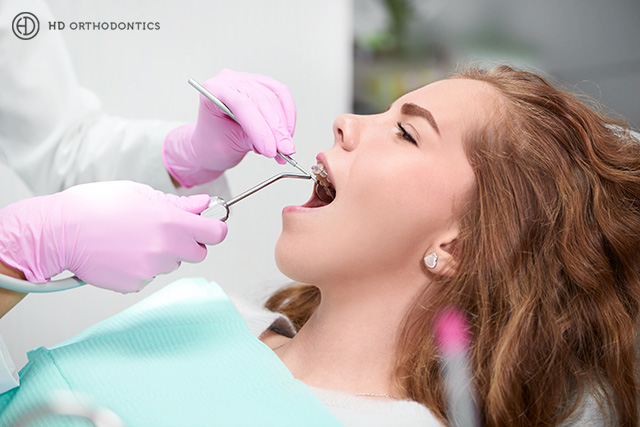Does Wisdom Teeth Removal Affect Orthodontic Treatment?


Long Beach, CA – The wisdom teeth are the last teeth to erupt in the mouth and can make their appearance anytime between the ages of 17 to 25. This is a common age range for orthodontic treatment as well, so can your wisdom teeth affect your orthodontic treatment?
In the past, it was typically recommended that wisdom teeth be removed because they were thought to negatively impact your smile by causing crowding. But more modern research has shown that this isn’t the case, and for most patients, wisdom teeth can erupt without causing any harm to their orthodontic treatment. A study comparing patients who have had their wisdom teeth removed to those who had not shown that both groups had similar relapse post-treatment. Therefore, there are other factors at play that can account for the relapse movement that patients experience.
For the majority of orthodontic patients, treatment can proceed normally either while the wisdom teeth are erupting, or after they have already come in. Your wisdom teeth will play no role in harming, or helping, you achieve your ideal smile.
Many people have mistakenly believed that if your wisdom teeth erupt after you’ve had braces, they can negatively affect your smile. This, however, is another myth because any force your wisdom teeth might place in your mouth is much too small to effect any kind of movement that could alter the position of your teeth. The way I like to describe it is that two teeth on the bottom (or top) are not strong enough to push up against fourteen others and cause noticeable crowding to occur. If you find that your teeth have shifted after your braces have been removed, the culprit can likely be attributed to failing to wear your retainer as directed by your orthodontist.
You can continue with orthodontic treatment while your wisdom teeth are erupting, without having to worry about negative effects on your smile. If you maintain regular check-ups with your dentist to ensure your wisdom teeth are coming in healthy and there are no issues, your tooth straightening will continue as prescribed.
There will be cases when wisdom teeth should be removed, however, these cases will most likely have nothing to do with orthodontic treatment. Sometimes, wisdom teeth can’t erupt fully due to lack of space and can become impacted. In these cases, they can become painful and difficult to clean, and your dentist may recommend removal. If the wisdom teeth are horizontally impacted against the second molars, they can also cause decay to develop on the back of the second molars in front of them, so this is often another indication for removal. For other patients, however, their wisdom teeth will erupt with no issues and if they maintain a proper oral care routine, the wisdom teeth will pose no issue.
Remember, if you are experiencing crowding in your mouth, don’t blame it on your wisdom teeth – they are more than likely innocent! As we age, our teeth will experience normal wear and tear, as well as natural drifting towards the anterior. This drifting can be especially true if you have previously undergone orthodontic treatment and cease wearing your retainer.
If you have any questions or concerns about your wisdom teeth, or any part of your orthodontic treatment, always discuss them with your orthodontist. Every patient is unique, and consequently every treatment approach will be unique, so always be sure to discuss questions or concerns with an orthodontic professional.

